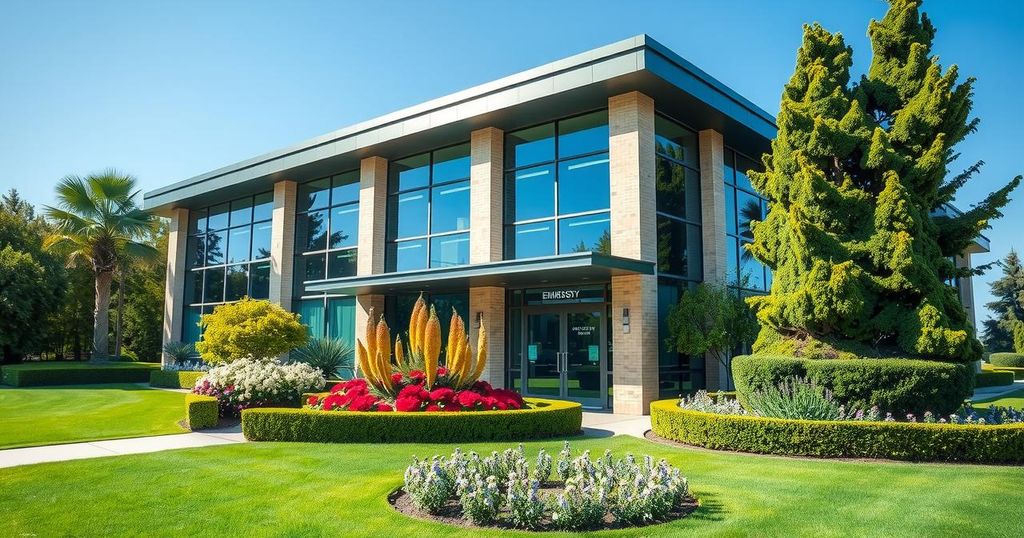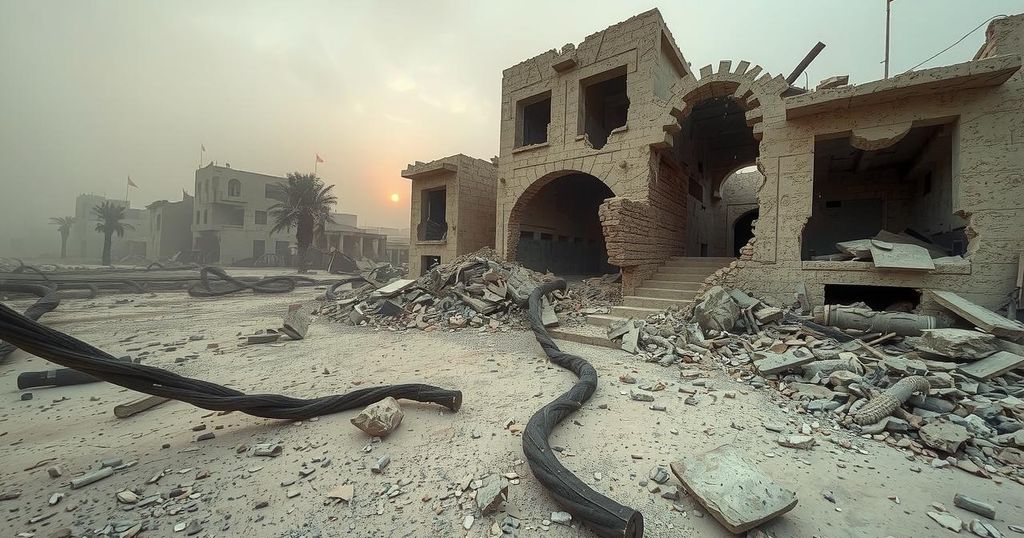Germany’s Foreign Minister Annalena Baerbock reopened the embassy in Syria during a visit to Damascus, signaling renewed diplomatic engagement. This move follows recent sectarian violence that resulted in over 1,500 deaths. Baerbock condemned the violence, urged accountability from the transitional government, and pledged support for Syria’s reconstruction while emphasizing the need for security for all citizens.
Germany’s Foreign Minister, Annalena Baerbock, has officially reopened the German embassy in Syria, signaling a renewed diplomatic engagement during her one-day visit to Damascus. The embassy had been closed since 2012 due to the ongoing civil war. This visit occurs shortly after a wave of sectarian violence that resulted in over 1,500 deaths along Syria’s Mediterranean coast, a region predominantly inhabited by President Bashar Assad’s Alawite minority.
During her visit, Baerbock condemned the recent outbreaks of violence, stating, “The horrific outbreaks of violence two weeks ago have caused a massive loss of trust. The targeted killing of civilians is a terrible crime.” Furthermore, she urged the transitional government under interim president Ahmed Al-Sharaa to ensure accountability within its ranks.
Baerbock emphasized Germany’s intention to collaborate with European partners and the United Nations in aiding Syria’s reconstruction. Germany has pledged 300 million euros ($325 million) for this cause, part of a broader total of 5.8 billion euros raised at a donor conference.
As the embassy reopens, a small diplomatic team will begin operations in Damascus. However, consular services will remain stationed in Beirut due to practical and security concerns. A source from the German foreign ministry stated that “Germany has a paramount interest in a stable Syria,” stressing the importance of diplomatic relations to foster stabilization and a political transition that considers the needs of all Syrians.
Baerbock insisted that a potential new relationship with Europe hinges on the interim authorities guaranteeing safety for all citizens, regardless of their faith or ethnicity. She acknowledged the fears among Syrians about the security situation, particularly in light of the recent violence, which was the worst since Assad’s ousting.
Reports from the Syrian Observatory for Human Rights indicate that security forces and allied groups have perpetrated these massacres predominantly against Alawites. In the context of ongoing regional tensions, Baerbock remarked on the detrimental impact of foreign interference in Syria, calling for military restraint from all parties involved to avoid further destabilization and disruption of peace efforts.
In conclusion, the reopening of Germany’s embassy in Syria by Foreign Minister Annalena Baerbock marks a significant step towards re-establishing diplomatic relations and addressing the humanitarian crisis in the region. Her strong condemnation of violence and commitment to reconstruction signifies Germany’s intention to play a vital role in stabilizing Syria. Furthermore, the emphasis on accountability and inclusive governance reflects a nuanced approach to fostering lasting peace and security in a war-torn nation. The engagement of international partners is crucial as Syria navigates this tumultuous period.
Original Source: www.arabnews.com




